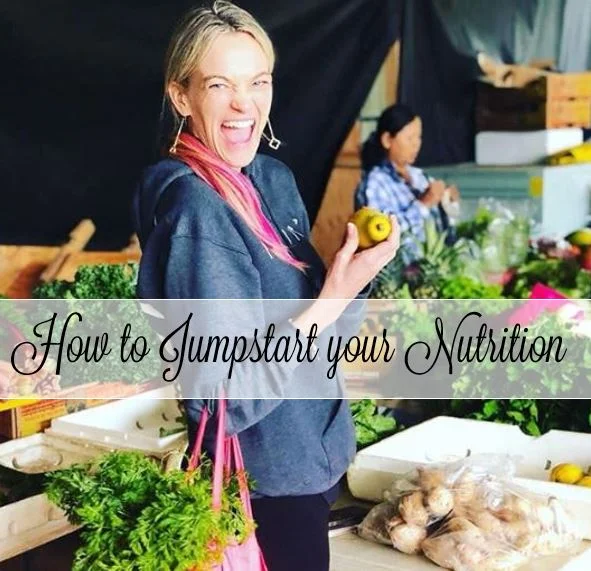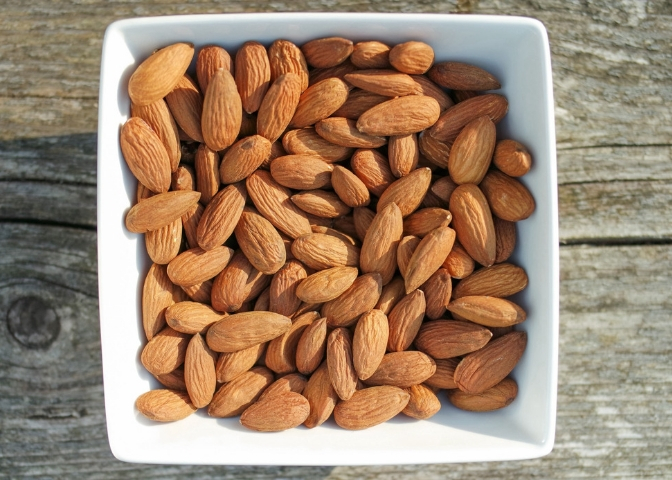Do you eat 5 or more servings of fruit and vegetables every day?
It’s what the U.S. Department of Agriculture (USDA) recommends we eat to avoid nutrient deficiency — but most people don’t.
The typical American diet is deficient in potassium, Vitamin D, calcium, and dietary fiber. Source: USDA and Department of Health and Human Services (HHS).
Even if you are among the few that follow the USDA guidelines, it’s difficult to get all the nutrients we need through diet alone.
For example, you would have to eat 3 bananas a day to get the recommended daily value of Vitamin B6!
But things get even trickier when you limit the types of foods you eat — if you’re a vegetarian, for example.
Not consuming all the vitamins and nutrients you need lands you in what’s called the “nutrition gap,” which can put you at risk for serious health problems.
That’s why it’s helpful to know what nutrients are in the foods you do eat, so you can make the best choices and supplement where necessary. In this post, we’ll talk about common nutritional deficiencies that occur when following some of the most popular diets.
Nutrient Deficiency in Vegetarians and Vegans
People who avoid meat and other animal products can easily find themselves lacking key nutrients like protein, vitamin B12, and iron. To avoid deficiencies, it’s important for vegans and vegetarians to fill up on a variety of nutrient-dense whole foods (as opposed to processed foods like bread and pasta).
Pump up the protein: In addition to protein-rich soy, vegetarians and vegans can ensure adequate protein intake by eating legumes, lentils, nuts and seeds, quinoa and whole grains. There are also many vegan- and vegetarian-friendly protein snacks and protein powders that can be used to supplement your diet and ensure you’re getting adequate nutrition.
Increase your iron: Iron is found in dark, leafy green vegetables, lentils, peas, and whole grains. Vegans and vegetarians should consume twice as much, whether through food or iron supplements, because plant-sourced iron (non-heme iron) is harder for your body to absorb than iron found in red meat (heme iron).
Boost your B12: Vitamin B12 is found almost exclusively in animal products, so it’s common for vegans and vegetarians to be deficient. B12 deficiency can cause anemia and nerve damage, so it’s important to make sure you’re getting enough. There are lots of vegan-friendly B12 supplements on the market. After much research, I found ones I absolutely love!
Low-Carbohydrate Considerations
Of course carbohydrates are in pasta and bread — but you also find them in nutrient-rich fruits, vegetables, and whole grains. Eliminating these from your diet can cause deficiencies of fiber, vitamin C, magnesium, and potassium.
Get enough fiber: It’s difficult to get enough fiber through low-carb fruits and vegetables alone. Make sure to also eat high-fiber grains like bran cereal or flax, or take a fiber supplement to keep your digestive system healthy.
Get enough fiber: It’s difficult to get enough fiber through low-carb fruits and vegetables alone. Make sure to also eat high-fiber grains like bran cereal or flax, or take a fiber supplement to keep your digestive system healthy.
Take your vitamins: Multivitamins can help you get the nutrients you need no matter what diet you follow, but are especially helpful when limiting your intake of carbs — particularly in the restrictive early weeks of a low-carb diet.
I love my shake that also contains probiotics and active digestive enzymes for better gut health, too!
Don’t forgo fat: Not all fat is bad! Good fats (found in avocado and olive oil) are important to a healthy diet, supplying energy and cell support. Plus, they help you absorb fat-soluble vitamins (A, D, E, and K).
The Problem with Paleo
Paleo diet (the “caveman diet”) followers stick to lean meats, nuts, fruits, and veggies to mimic our early ancestors’ diet. This means they eliminate all processed foods — including dairy and wheat products. This can result in calcium, riboflavin, and vitamin D deficiency.
Calcium is crucial: In addition to being vital to bone health, calcium supports heart, muscle, and nerve function. Edamame, bok choy, and dark, leafy greens like spinach and collard greens are rich in this vital nutrient. Calcium supplements are also widely available.
Don’t forget vitamin D: Vitamin D promotes the absorption of calcium and helps support a healthy immune system. Paleo dieters can find it through supplements or eating fatty fish (like salmon) and soybeans.
Ramp up your riboflavin: Also known as vitamin B2, riboflavin helps your body metabolize food and produce energy. It’s in lean meats, eggs, almonds, and spinach.
Whatever your diet, you will need high quality supplements to fill in nutritional gaps. The ones I love have more than 100 premium-grade vitamins and minerals, antioxidants, digestive enzymes, protein, fiber and more. When you are consistent with your supplements and become more mindful about the quality of foods that you eat, you will live, look, and feel your best!
Want more information about living healthy and how to get a jump-start on nutrition?
Download my FREE 10-Day Detox program!
It’s completely free, but packed with more than 100 pages of tips and recipes to help you live the life you deserve!












